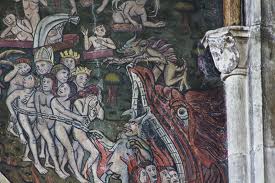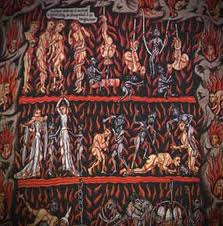Wilfred Owen, selected poems Contents
- Wilfred Owen: Social and political background
- Wilfred Owen: Religious / philosophical context
- Wilfred Owen: Literary context
- Wilfred Owen: 1914
- Wilfred Owen: Anthem for Doomed Youth
- Wilfred Owen: At a Calvary near the Ancre
- Wilfred Owen: Disabled
- Wilfred Owen : Dulce et Decorum Est
- Wilfred Owen: Exposure
- Wilfred Owen: Futility
- Wilfred Owen: Greater Love
- Wilfred Owen: Hospital Barge
- Wilfred Owen: Insensibility
- Wilfred Owen: Inspection
- Wilfred Owen: Le Christianisme
- Wilfred Owen: Mental Cases
- Wilfred Owen: Miners
- Wilfred Owen: S.I.W
- Wilfred Owen: Soldier’s Dream
- Wilfred Owen: Sonnet On Seeing a Piece of Our Heavy Artillery Brought into Action
- Wilfred Owen: Spring Offensive
- Wilfred Owen: Strange Meeting
- Wilfred Owen: The Dead-Beat
- Wilfred Owen: The Last Laugh
- Wilfred Owen: The Letter
- Wilfred Owen: The Parable of the Old Man and the Young
- Wilfred Owen: The Send-Off
- Wilfred Owen: The Sentry
- Wilfred Owen: Wild with All Regrets
Mental Cases - Language, tone and structure
Language in Mental Cases
Language borrowed from the Bible and Shakespeare:
The language Owen uses in Mental Cases is weighted to suit the subject and theme: breakdown and perpetual hell. There are a number of archaic phrases such as ‘Wherefore rock they?’ l.2 and ‘multitudinous murders’ l.12, together with convoluted syntax such as ‘like skull’s teeth wicked’ l.4 which hold echoes of the Bible and Shakespeare.
From Macbeth, Shakespeare’s dark play of death and destruction, Owen borrows:
- Lady Macbeth’s ‘multitudinous seas’ which will be reddened by the blood she has spilt
- Macbeth’s realisation that he is too far steeped in blood to turn back:
Stepp'd in so far that, should I wade no more,
Returning were as tedious as go o'er. Act 3 sc 4, l.136-7.
Owen uses the same sense for the men who are haunted as they eternally wade ‘sloughs of flesh’ with no escape.
- In Act 1 sc v l.51-53, Macbeth cries:
‘Come thick night and pall thee in the dunnest smoke of hell’.Owen uses these sinister phrases to darken his scene: ‘night comes blood-black’ l.21 and
human squander
Rucked too thick for these men’s extrication.’ l.16-17.
Diction
Owen chooses words to suit the subject matter in Mental Cases. The diction of the poem is chilling and purposefully repellent. He spares us no detail of the physical symptoms the shell shocked men exhibit: they sit and rock l.1-2, their teeth bared l.4, with tongues hanging out whilst their ‘jaws...slob their relish’ l.3, their hands absently ‘plucking’ and ‘snatching’ l.25,27.
He is equally brutal in his description of the causes of this behaviour in the past on the front line where the fact that the men waded through ‘sloughs of flesh’ is not poetic hyperbole. The act of walking across corpses actually did squeeze ‘blood from lungs’ l.14. The number of dead ‘human squander’ l.17 is so great that it is ’Rucked too thick’ l.18, the piled up consonants like a great mass of bodies or heap of dead flesh from which these men will never be free.
Owen creates a vision of the men’s situation akin to the medieval depictions of hell in doom paintings. The men are ‘tormented’ l.19 like the souls of the damned in Dante’s inferno. As well as their animalistic traits, they are depicted like the dead, with mention of ‘skulls’ teeth’ and ‘sockets’ for eyes l.6.


Owen refers to ‘purgatorial shadows’, purgatory being the place (according to Catholic doctrine) in which sinners ‘pay for’ for wrongdoing committed during their life, after which they can proceed to heaven. However, the hell in Owen’s poem is inescapable: ‘Always they must see these things and hear them’ l.15. Worst of all, Owen believes that the men are not ‘paying for’ their own wrongdoing, but for the sins of himself and others (‘us’) ‘who dealt them war and madness’ l. 28.
Alliteration
Owen uses alliteration sparingly in Mental Cases but to great effect whenever he wants to press home a point of horror:
- ‘Memory fingers in their hair of murders, / Multitudinous murders’ l.11 and l.12 the deceptively comforting softness of the ‘m’ contrasting with the horrific subject-matter
- The mental cases ‘witnessed’ these murders (notice the past tense); but they ‘helpless wander’ in the present ‘wading’ though sloughs of flesh. l.12 and l.13
- They still tread blood from ‘lungs that had loved laughter’ l.14
- ‘night comes blood-black’ l.21 and so their ‘heads wear this hilarious, hideous’ look l.23
- Owen uses alliteration to emphasise the ‘scourging’ of the set smiling corpses they represent who snatch at ‘us who smote them’ l.27.
Grammatical distortion
Such is the horror which Owen is determined to show that there are times in the poem Mental Cases where the grammatical structure of the lines is contorted under the stress. Owen and his companion observing the cases ‘walk’ not ‘in hell’ as we might expect but ‘walk hell’. They refer to them as ‘these hellish’ l.9 using an adjective as a noun to shock us and later in a similar way ‘these helpless’ l.13. The mental cases are not even referred to as helpless men or hellish men, they are ‘merely’ the raw, dehumanised adjective.
Owen uses grammatical distortion to horrendous effect when he describes the ‘carnage incomparable’. Here the ‘batter of guns’ and the consequent ‘shatter of flying muscles’ pull us up as Owen creatively uses the verbs ‘batter’ and ‘shatter’ as nouns. The phrase ‘human squander’ which ends l.17 is in the same vein.
Oxymoron and hyperbole
Owen uses these poetic devices to show the horror of war. The men’s oxymoronic ‘slow panic’ l.5 has ‘gouged’ the ‘chasms’- more hyperbole- around their eye sockets. Owen’s use of the oxymoron: ‘set-smiling corpses’ l. 23 sums up their living-death.
Tone
Pity
Owen’s pity and poetry play out in the irony of Mental Cases. The actions of the men - ‘plucking’ l.25, ‘picking l.26, ‘snatching’ l. 27 and ‘pawing’ l.28 - are terrifying and yet are beyond their control. Their ‘leer’ l.4 is described as ‘wicked’, they have an ‘awful falseness’ l.24 about their smiles. Owen shows them to us as victims of ‘war and madness’; we are left to feel the pity.
Rhetoric
Owen begins the poem with a rhetorical question: ‘Who are these?’ l.1. This tone is continued throughout the first stanza with further questions: ‘Why?’ and ‘Wherefore?’ The mental cases of the title which depersonalises them are further dehumanised by the tone of the pronouns Owen uses : ‘these’, lines 1, 10, 13, 18, ‘they’ lines 1, 2, 9,10, ‘their’: lines 3,6,7,8,11,19,20,23,25,26, , ‘them’: lines 15,27,28 - stripping them of all individuality.
Investigating language and tone in Mental Cases
- Disabled and Mental Cases can be seen as two sides of the same coin, the first dealing with the physically disabled, the second with those whose reason has been shot away. How does Owen capture our pity in both poems?
- Which is the harshest reality?
- What do you think Owen felt about the two different states of injury?
Structure and versification in Mental Cases
Structure
Owen uses three distinctive stanzas to show the plight of those disabled by shell shock or neurasthenia.
- Verse 1 questions the very nature of the mental cases observed by Owen and whoever he is speaking with - the ‘we’ of line 8 suggests two people. The descriptions of the suffering of the ‘cases’ are unequivocally awful
- Verse 2 answers the who? why? and wherefore? of the first verse. These men have forgotten normal behaviour but remember all too vividly and unrelentingly the horrors of the war
- Verse 3 concludes ‘therefore’ they are as they are. Owen comes to the realisation that the situation set out in the first stanza is a result of the events related in the second and consequently ‘thus’ they behave in the unsettling manner towards ‘us who smote them’ l.27
Rhythm
For such a disturbing poem, Owen uses mostly regular trochaic pentameters. Moments of particular horror are recounted with an extended line length (e.g. l.7, l.16), jolting us out of the routine. The rhythm is heavy and depressed, emphasising the mood of the poem.
Rhyme
At first sight Owen seems to have dispensed with pararhymes or any rhymes, but on closer inspection it is possible to find echoes and wisps of patterns reflecting the unsettled nature of the subject:
- The ‘relish’ of their ‘slob’ l.3 is echoed in a full rhyme far away at the end of the first stanza with ‘these hellish’ l.9, by way of the half rhyme of ‘perished’ in line 8
- Parts of their bodies clash in half rhymes: the ‘fretted sockets’ l.7 and the ‘teeth wicked’ l.5
- The helpless ‘wander’ and the human ‘squander’ l.13 and l.17 are rhymes which are surprisingly true
- The rhyming of ‘batter’ and ‘shatter’ l.16 add an onomatopoeic effect to the poem giving us a taste of the way in which the ‘cases’ have been injured.
Investigating structure and versification in Mental Cases
- In Mental Cases Owen seems to either jettison rhyme altogether or use almost pure predictable rhymes to make his point. How does this use of rhyme add to the pity of the poetry?
- Remind yourself of Exposure in which Owen uses carefully constructed half rhymes. Which poem is the more effective and why?